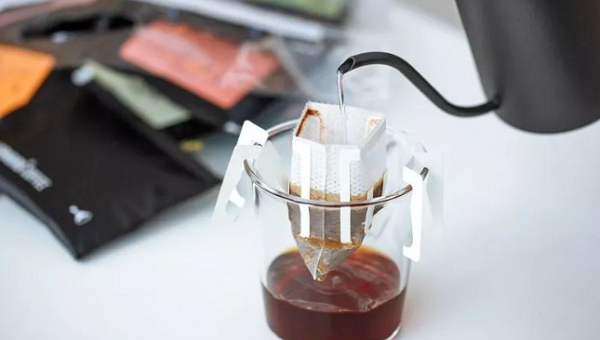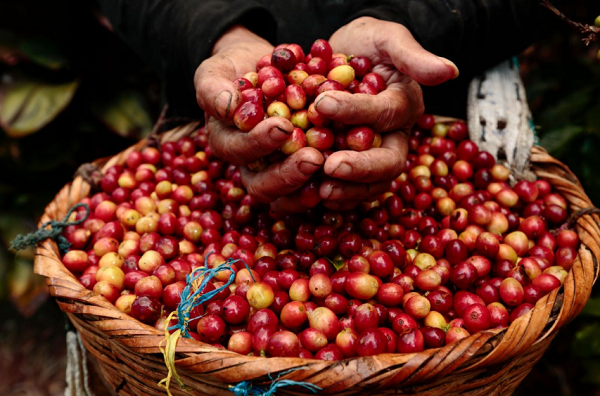There are 5 key elements in tasting a good cup of coffee
There are 5 key elements in tasting a good cup of coffee: aroma, taste, acidity, body and aftertaste. For baristas, these five points are very familiar, but for coffee noobs who don’t know them yet, today’s article will be a good opportunity for you to get started and taste coffee.
When you buy a cup of high-quality coffee, the word “delicious” may not be enough to describe the feeling of this cup of coffee. If you want to learn how to understand the taste of a cup of coffee, then read on. The following descriptions, some of which you may be able to understand right away, others may require more explanation, aroma, taste, acidity, body and aftertaste These are the five elements of coffee tasting, we often say coffee cupping test , is to score these five elements by tasting coffee.
Aroma-aroma
Aroma, smell, aroma, olfactory attributes, whatever you call it, refer to the aroma of coffee, and dry aroma refers to the aroma emitted by fresh coffee beans after grinding, when volatile aromatic compounds are released in large quantities. However, some volatile aromas cannot be vaporized at room temperature and need to be brewed with high-temperature hot water to release the aroma. This is the wet aroma of brewed coffee. Dry aroma and wet aroma are volatile aromas. The water-soluble taste after cooking, which is the third level of flavor, needs to be captured by the taste buds of the tongue, because the relationship between taste and smell is closely related.
Flavor-taste
Tasting coffee requires the senses of smell and taste to perform their duties and complement each other. When the coffee enters the mouth, the tongue detects the taste of the coffee, and then it is handed over to the nasal cavity to identify the aroma of the coffee, and finally the feeling is conveyed to the brain for association and finding Find out which kind of food/flower smell is closest to the taste and fragrance you feel at this moment, so as to build a complete sense.
For coffee novice, the most obvious taste of coffee is “coffee taste”, but when you taste coffee with your sense of smell, you will have a different experience. Coffee has volatile citrus, floral, berry, chocolate, nut, butter, caramel, smoky and other vaporized components, all of which are presented by the combination of the front nose and the back nose smell, which is what we call the taste of coffee. For the description of the flavor of coffee, there are 4000 flavors on record. Everyone’s judgment and memory of taste are different, and it is a very subjective sensory experience. Although the characteristics of aroma and taste are different, as long as you practice, it will help you taste coffee.
Acidity-acidity
Because coffee is a kind of fruit, coffee will have a certain degree of acidity, and there are many components that cause coffee sourness, such as citric acid, malic acid, acetic acid, chlorogenic acid and so on. There is an in-depth explanation in our previous article, and interested friends can go to check it out. When we talk about acidity in tasting coffee, we mean bright and uplifting acidity, acidity that matches the flavor of the coffee, and some negative acidity or sharp acidity.
Many coffee lovers don’t like acidity in coffee, and like coffee that is very mellow or even strong, thinking that it is strong enough. But if you want to taste a cup of coffee more completely, the key to it is to understand the acid in coffee.

Body-thickness
It is called “Body” or “Mouthfeel” in English, which refers to the feeling of coffee slipping in the mouth and the tip of the tongue and falling into the throat, and it is the weight felt in the mouth. High-quality coffee will have a fuller mouth feel and more weight than low-quality coffee. Some coffee will feel very full in the mouth, while some coffee will taste very watery, and the flavor will be erratic and short-lived. , the former is superior and the latter is inferior.
Aftertaste-aftertaste
When the coffee is in your mouth, you can feel its flavor through the senses of smell and taste. After you drink the coffee, if you close your mouth and breathe, there will be a taste coming back from your throat.
Some aftertaste is very long-lasting and clear, while others are very short-lived and vague. Generally, the aftertaste of high-bodied coffee is longer. We say that a longer and clearer aftertaste is good, and the quality of such green coffee beans is higher.








